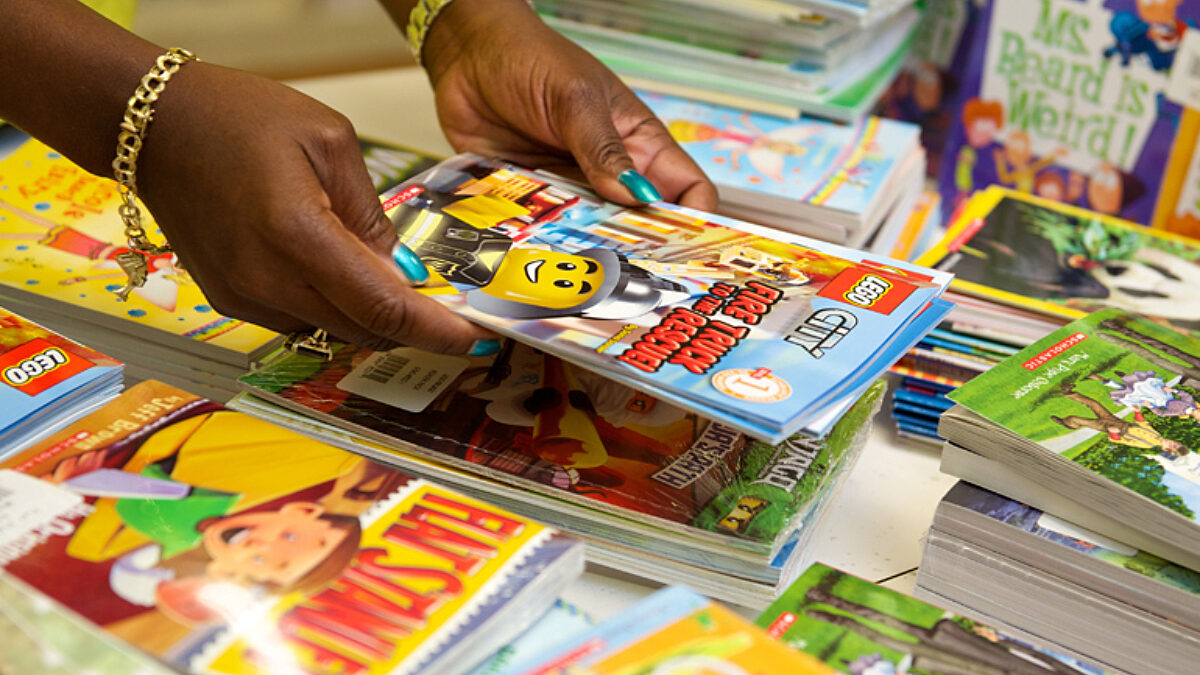
MBE: Going beyond the book giveaway
By Jessica Connor
In addition to distributing books to children, Million Book Effort organizers are hoping United Methodists will move on to the next step in the program: helping kids connect with the books in a meaningful way.
Tutors and volunteer readers are needed in schools, preschools and afterschool/enrichment programs across the state. But the most effective work to combat illiteracy and poverty starts at home, say many groups.
One nonprofit organization, The School Foundation, has been reaching out to parents in the Florence area to help them learn key reading strategies to practice at home with their very young children. The School Foundation works with Florence School District One and has developed a school readiness early childhood development program, Start SMART, so children can be school-ready by the time they enter kindergarten.
According to Executive Director Debbie Hyler, The School Foundation partners with large companies in Florence, such as Blue Cross Blue Shield. Once a month, certified teachers visit the various workplaces and meet with the parents of young children about specific things they can do to foster strong reading in their children. They give eight books to the parents, assess the children’s reading levels and share tips such as exactly how to read to a 1-year-old, what sort of comprehension questions to ask of a 3-year-old, etc.
“Kids learn half of what they’ll learn by age 4,” said Richard Harrington, a member of Highland Park UMC in Florence who sits on The School Foundation’s board of directors, noting that helping parents of very young children helps break the cycle of illiteracy and, ultimately, poverty. “It is best to have a community-based comprehensive effort to be most effective and sustainable. We have a cadre of people working together so the child will not fall through the cracks.”
Floyd Creech, early childhood specialist with Florence School District One, said the program is much more than sharing a book and more about empowering parents to start good reading skills at home.
“Our goal is to get 1,000 families involved,” Creech said.
Dr. Tammy Pawloski, fellow School Foundation board member, member of Central UMC in Florence and director of Francis Marion University’s Center of Excellence to Prepare Teachers of Children of Poverty, has done much research into the impact poverty has on the developing brain, noting that there is evidence that poverty does change the brain.
“Kids born in poverty are more likely to be premature, have low birth weight, and suffer from a host of brain disorders than can put them at risk immediately,” Pawloski said. “The first five years is a critical time for language development, and kids in poverty have heard 30 million fewer words by age 3. Low-income kids have half the vocabulary in first grade as their peers.”
Pawloski said it is difficult to fix this problem unless educators and other concerned advocates stop the cycle early on—ideally during the years of birth through age 5.
“Studies show lower income mothers use fewer words than higher income mothers. There’s a huge disparity in language,” Pawloski said, noting how chatting with infants during diaper changes makes more of an impact than parents ever imagine.
She said vocabulary numbers are tied directly to the number of prison beds.
Hyler and the other School Foundation board members encourage people to visit their website, www.theschoolfoundation.org, and click on the tab for Start SMART. There, parents, teachers and advocates will find a wealth of resources for maximizing reading with young children, including interactive quizzes to help parents gauge their child’s current developmental progress; “ask an expert” articles where parents can seek advice from pediatricians and child development psychologists; detailed year-by-year development breakdowns to help parents set goals and identify milestones as they are reached; and much more.
Harrington said helping kids become strong readers is a critical service the church can do for people in need.
“In our faith, we’re taught to do for the poor, but not taught what to do to prevent poverty,” Harrington said. “These are steps to breaking down barriers.”
For more resources or assistance, visit www.theschoolfoundation.org, or contact Harrington at 843-260-6846 or [email protected] for further insight on getting started with a similar program in your community.